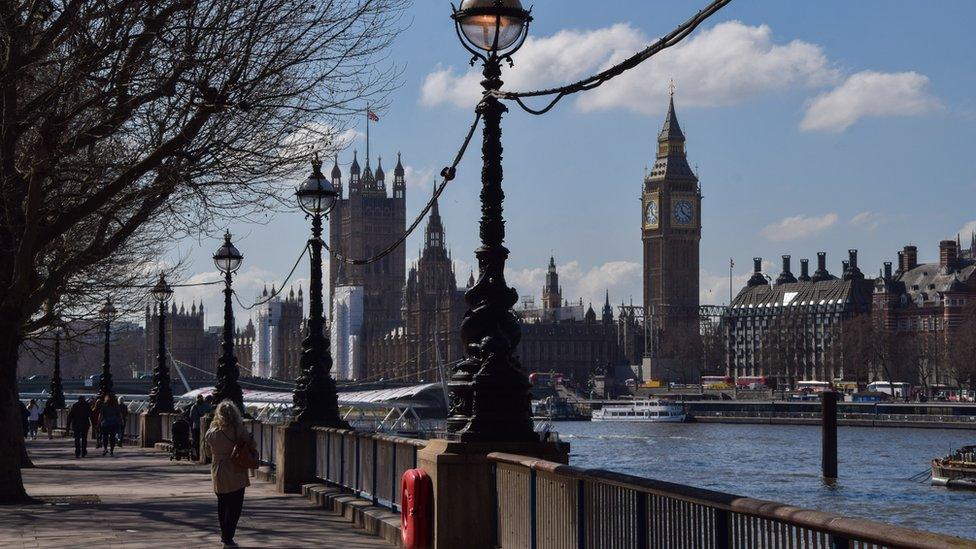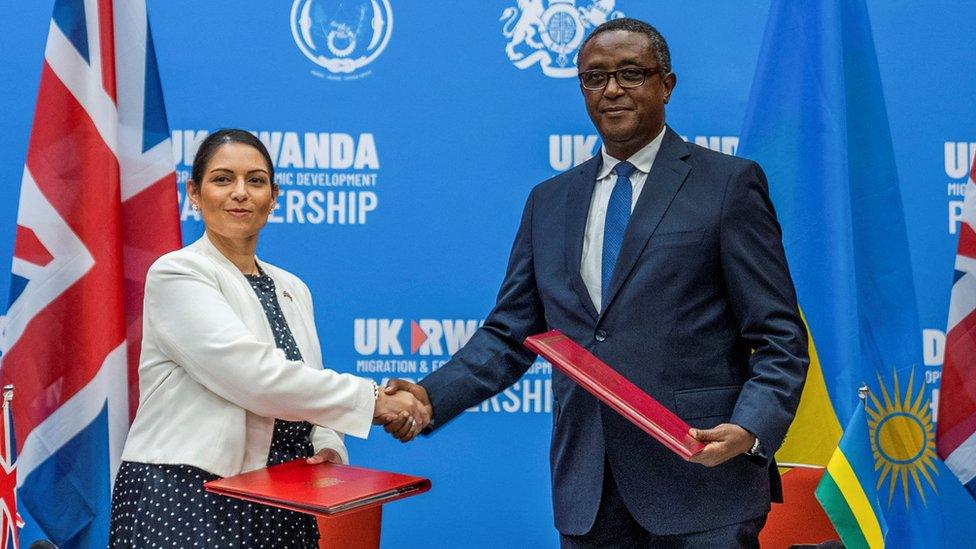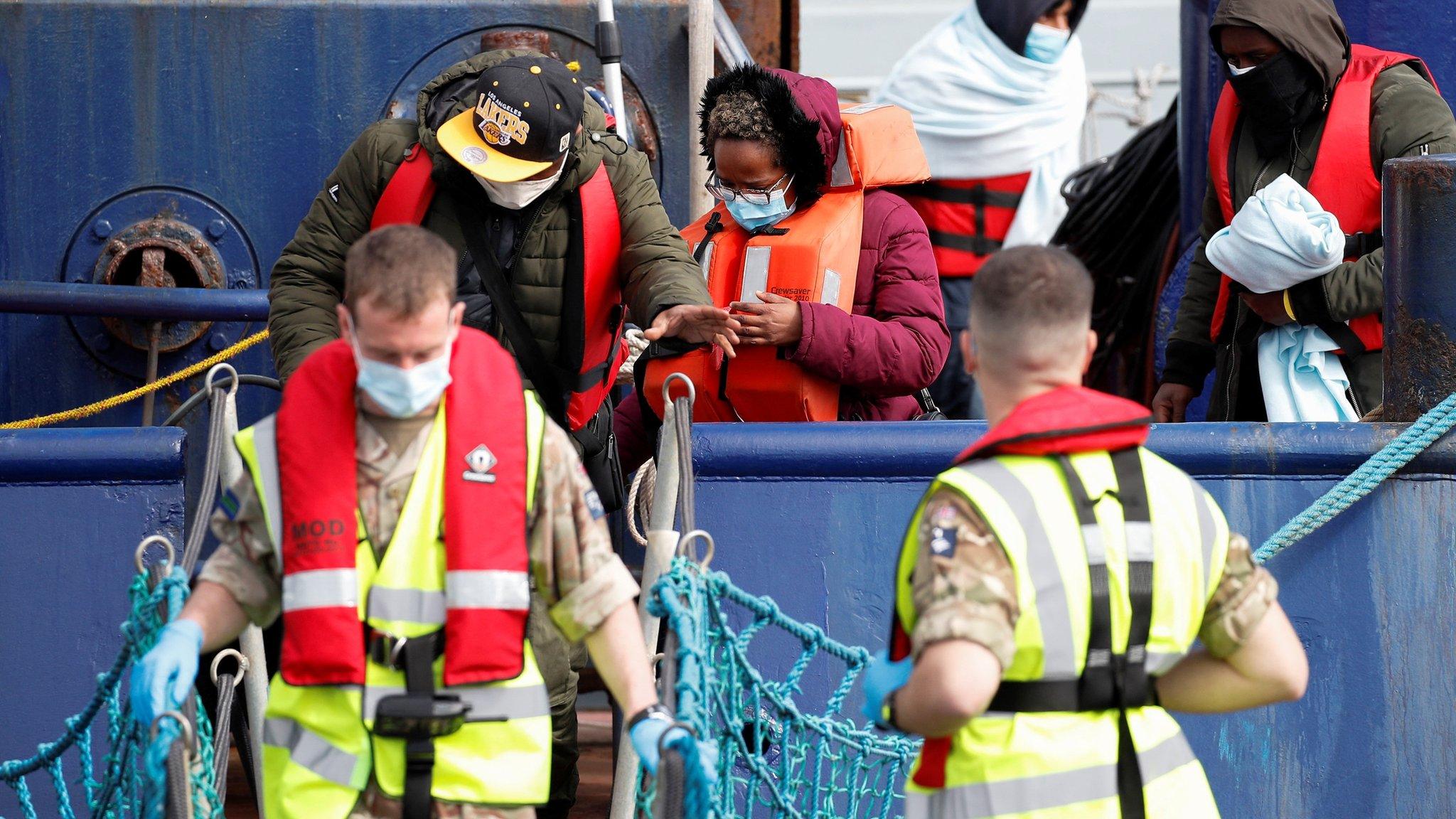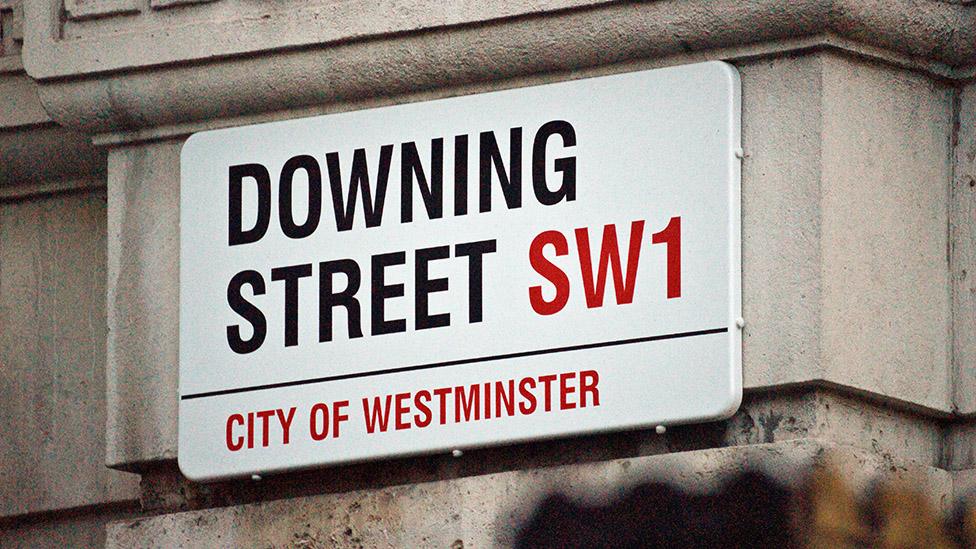What's happening in Parliament next week?
- Published

What will the fallout be?
The fines for the prime minister and the chancellor over partygate are bound to trigger some kind of parliamentary hue and cry, but what exactly?
The Labour, SNP and Lib Dem leaders have all called for Boris Johnson to resign, but it is not clear how this might be translated into action when the Commons reconvenes on Tuesday.
The key problem for the Opposition parties is that any strategem they devise will not succeed without the support of 40 to 50 Conservatives - and very few have broken ranks.
So neither the blunt instrument of a no-confidence motion in the government, nor a targeted no-confidence motion against the PM, nor the more pointed device of a privilege motion calling for an investigation into whether he knowingly misled Parliament seem, as I write, likely to get through a Commons vote.
This is not to say that the Opposition won't want to have a public row to keep the issue alive, force Conservative MPs to publicly defend their leader, and make it as painful as possible. But they will also wish to avoid any move that simply consolidates Conservative unity around the PM.
In any event the expectation is that the prime minister, who has promised to "set the record straight at the earliest opportunity", will have to make a statement to the House on Tuesday (it's either that or be compelled to by an inevitable urgent question).
The dissection of his words will then doubtless spill over into his regular Wednesday Question Time, with Mr Speaker on alert on both occasions to police the boundaries of acceptable parliamentary language.
'Offshoring'
MPs will doubtless want updates on other matters: the war in Ukraine and the government's new policy to "offshore" some asylum seekers to Rwanda for starters, with the latter probably provoking another rebuke from Mr Speaker about major policy announcements being made outside Parliament.
Half of Parliament is back for this three-day week - and while the Lords continue their Easter break, the Commons looks set to spend much of its (non-recriminating) time dealing with changes peers have made to some major pieces of legislation, with the clock ticking towards the end of the current parliamentary cycle.
While the Commons was away, the Lords was at play.
MPs had rejected the changes they had made to the Nationality and Borders Bill, but peers then voted 12 times to undo those Commons decisions.
These included insisting on an amendment to give victims of modern slavery a year's leave to remain in the UK, removing provisions criminalising all arrivals in the UK without valid clearance, insisting that unaccompanied children could claim asylum in the UK if they had relatives here, and removing the "offshoring" provisions which would allow the government to send asylum seekers to a third country while their cases were determined.

Home Secretary Priti Patel signed the UK's first offshoring asylum deal during a visit to Rwanda
These are not small technical issues, but major features of the government's proposed new immigration system - seen by many Conservative MPs as an essential part of their appeal to "Red Wall" voters. There are some voices in the Lords who would be quite happy to kill the Bill - although Labour, as a potential alternative government, are not keen to set that kind of precedent.
Then we come to the Health and Care Bill, where peers have similarly fired back to the Commons pretty much the same set of major amendments they've been pushing for some weeks.
Their suggested changes cover staffing levels for NHS England, the government's proposed personal cap on social care costs, and banning products tainted by genocide and modern slavery (with the plight of the Uighur people in China's Xinjiang province very much in mind).
The Lords has also made a significant change to the Elections Bill - defeating the government by watering down the ID requirements for voting. Who will blink first if the government refuses to compromise with peers?
Controversial bill
The parliamentary rule book does allow bills at a relatively early stage of consideration by the Commons to be "carried over" so that their consideration simply continues in the next session, and this will certainly be applied to the Online Safety Bill, a truly ground-breaking piece of legislation, which is due for its second reading debate on Tuesday 19 April.
Given the sweeping powers it will create to regulate the internet, including "legal but harmful" content, it is certain to be highly controversial.
The Adam Smith Institute, a free market think thank, has dubbed it "an illiberal, incoherent, anti-innovation mess".
There has already been a fair amount of parliamentary action over the bill, which was extensively scrutinised in draft form, with the Digital, Culture, Media and Sport Committee, the Petitions Committee, and a special scrutiny committee, under Conservative Damian Collins, all weighing in.
The government has set a fairly testing target date, the end of June, for completion of the scrutiny process in a public bill committee. Watch this space.
Motions have also been put down to carry over the Higher Education (Freedom of Speech) Bill, the Animal Welfare (Kept Animals) Bill, and the High Speed Rail (Crewe-Manchester) Bill - the latest stage of the HS2 high-speed rail line.
Related topics
- Published7 January 2022

- Published14 April 2022

- Published25 May 2022

